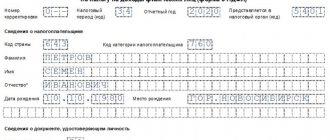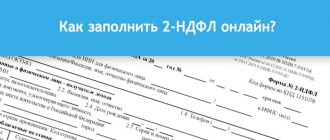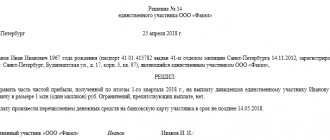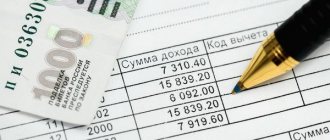How much is spent on patients with rare diseases?
In 2021, it is planned to spend about 10 billion rubles from regional budgets to provide care for all patients with life-threatening orphan (rare) diseases, and the federal program provides for expenses of about 35 billion rubles, the head of the project office “Rare (orphan) diseases” of the National Research Institute told RBC public health ON THE. Semashko Elena Krasilnikova. In addition, there are patients with rare diseases that are not included in any of the federal registers, but they are partially provided with disability benefits from regional budgets. It is difficult to say how much is spent on such groups of patients with rare diseases, the expert noted, adding that the epidemiological list of orphan diseases includes about 260 diseases, but only 28 are programmatically designed and funded on the basis of orphan diseases.
Of the announced initiatives, the decision on personal income tax is the most striking and significant in the long term, believes political scientist Alexander Pozhalov. “This is, albeit still quite neat, but a clear step from a flat to a progressive scale and thereby a response to the growing demand of a society that has become victorious in recent years for social justice, a step towards leftist forces,” he adds. High salaries of top management of state corporations irritate the majority of Russian residents, and this decision is addressed specifically to them, notes political scientist Dmitry Fetisov. The change in the personal income tax scale for wealthy Russians is driven more by public demand for social justice rather than by fiscal considerations (60 billion rubles is too small an amount in terms of the budget), the NKR rating agency said earlier in a commentary.
Read on RBC Pro
Three main myths about imports to Russia Gentlemen and dachas: how three Russians are making “Airbnb for country houses” When work in IT ends: a forecast about the future of programmers Why the auto industry is sounding the alarm due to a shortage of microcircuits
Kudrin called personal income tax adjustments accurate Economics
Sources from Forbes and RBC reported on the discussion of raising the personal income tax rate for wealthy Russians last week. A source close to the presidential administration told RBC that now “the ideal sanctions-pandemic situation” for increasing the personal income tax rate on high salaries. According to him, the idea of increasing the personal income tax rate was promoted by the former Minister of Economic Development and presidential aide Maxim Oreshkin. The issue of increasing personal income tax was discussed with Prime Minister Mikhail Mishustin and the economic bloc of the government, a government source told RBC. “The first option [of the annual income threshold] was 3 million rubles,” noted RBC’s interlocutor. According to him, Mishustin was initially against it. Earlier in the State Duma, the prime minister spoke out against the progressive scale of personal income tax. “But, given that the amount is quite high and this was the president’s initiative, we settled on the amount of 5 million, or more precisely, more than 5 million,” the RBC source said.
Another source close to the government told RBC that the idea of an increased personal income tax for high-income Russians was worked out at the end of last year during the preparation of the President’s January address to the Federal Assembly. Another RBC interlocutor close to the government said that the topic of increasing personal income tax was discussed a year ago during the work of Dmitry Medvedev’s cabinet, but then the matter did not come to a decision.
Two years ago, Vladimir Putin said that from the introduction of a progressive personal income tax scale, “the fiscal result is almost zero, but there is a lot of noise.” In February 2021, Finance Minister Anton Siluanov, in an interview with RBC, assured that until 2024, taxation principles will remain unchanged, and the issue of progression of personal income tax can be returned in four years.
The other day, the president returned to the campaign agenda for voting on amendments to the Constitution (scheduled for July 1) the topic of “Tereshkova’s amendment” (on zeroing out presidential terms) and did not rule out the possibility of running again if the amendments are approved, Pozhalov recalled. Against this background, an injection of social optimism should increase both voter turnout and support for the amendments, returning to the president some of the voters who had hesitated amid the crisis, the political scientist noted.
The increase in income tax will affect a small share of Russians, but has great potential for expansion in the future, believes Anton Tabakh, chief economist of the Expert RA rating agency. “As with the tax on deposits, mechanisms are probably being worked out to launch a full-fledged progressive tax,” he believes. After “training” on a small group of taxpayers, in a year or a year and a half, it is possible that the personal income tax rate will increase and the income level will be lowered, Tabakh expects. In addition, federalization of part of the personal income tax is being worked out, all income from which now goes to regional budgets. Personal income tax is a regional tax (85% goes to the budget of the subject, 15% to the municipality). However, from the words of the president it follows that an additional tax on wealthy citizens in the amount of 2 percentage points. will be centralized at the federal budget level, from where it will be redirected for the treatment of children.
How to calculate personal income tax in 2021
Personal income tax is a contribution required to be paid when receiving money from almost any source. Absolutely all people are required to do it. And for officially employed persons, deductions are made by their enterprise. Also see “Who pays personal income tax”.
To determine the amount of personal income tax for deduction to the budget, you need to use a simple formula:
PN = S x N
- PN – income tax;
- S – the amount on the basis of which the calculation is made;
- No. – personal income tax interest rate.
EXAMPLE LLC “Style” awarded employee Gusev a salary of 35,800 rubles, as well as a bonus of 11,000 rubles. For him, the personal income tax rate is 13%. How much percentage of personal income tax salary should be transferred to the budget?
Solution: (35,800+11,000) × 13%=6084 rub. – the amount of income tax.
As a result, Gusev will receive in his hands: 46,800 – 6,084 = 40,716 rubles.
It is important to remember that persons who received:
- state benefits for unemployment, pregnancy and childbirth;
- pensions and social benefits;
- scholarships;
- funds from inheritance;
- maternal capital.
Tax maneuver for IT companies
Vladimir Putin proposed reducing the rate of insurance premiums for IT companies by almost half, from 14 to 7.6%, reducing the income tax from 20 to 3%, which, according to the president, “is not only comparable, but even better than in such jurisdictions that are attractive today for IT business, such as Indian and Irish.” Both measures will be in force indefinitely, Putin emphasized.
The President ordered the development of a comprehensive tax maneuver for the IT industry on June 10 following a meeting on the development of the industry. Then the president of the Russoft association, Valentin Makarov, proposed reducing or abandoning the collection of VAT from IT companies operating on a service model, and abandoning insurance premiums at least until the end of 2021, as well as reducing the income tax for exporting companies to 2%. BY. Recently, Vedomosti reported on the details of the document being prepared, citing federal officials.
Executive Director of the Association of Russian Developers and Manufacturers of Electronics Ivan Pokrovsky called the permanent reduction of wage taxes one of the most important decisions for the IT industry. “It allows contract developers to expand their share in markets with fierce price competition, and product companies - in direct proportion to the reduction in taxes, to increase the volume of their own investments in development, since for them the salaries of developers are investment expenses,” he said. The head of the Association of Computer and Information Technology Enterprises, Nikolai Komlev, noted that these measures “will definitely help IT companies not only survive, but also work completely in the white zone.” According to him, “this is beneficial to the state and business and will allow us to build long-term business plans.”
However, a reduction in income tax will have a positive impact on the industry only if IT companies show profits, said Natalya Kasperskaya, CEO of InfoWatch Group of Companies. She noted that according to the results of a survey by the association of software developers "Domestic Software", in April-May profits decreased by 45-47% compared to the same months last year. “For Russian developers, among whom there are a lot of medium-sized enterprises that do not expect profit, but are simply trying to survive, this measure will not help. Only recognition of the IT industry as affected by the pandemic and receiving 50% rental benefits, a tax deferment for a year, and available subsidies for the salaries of their qualified and rather scarce specialists will help them,” Kasperskaya emphasized.
Deloitte partner Anton Zykov did not rule out that there may be situations in which companies that are not involved in IT will try to get these benefits, and on the contrary, some IT companies, due to formal reasons, will not be able to receive benefits. “But, firstly, these are only the president’s proposals, which should be materialized into bills. They have six months to develop and adopt them, so within six months legislators can work with analysts and industry representatives to develop suitable rules of the game. Secondly, we highly appreciate the ability of the Federal Tax Service to respond to potential abuses,” he explained.
Basic personal income tax rates in 2020
Here are the main personal income tax rates in 2021:
- 13% – salaries and other income of residents, except those taxed at a rate of 35%.
- 35% – winnings, prizes and financial benefits of residents.
- 13% – salaries of non-resident foreigners with a patent, citizens from the EAEU, highly qualified specialists, refugees and those who have received temporary asylum in the Russian Federation.
- 30% – other income of non-residents.
- Dividends are taxed at a rate of 13% for residents and 15% for non-residents.
Next, we will look at the 2021 rates in more detail and provide a breakdown in the tables (for residents and non-residents).
Results
Tax rates for personal income tax in 2021 have changed. A progressive tax rate on income over 5 million rubles has been approved. at the rate of 15%. The previous change in personal income tax rates was in 2015, when the rate for dividend income was increased from 9 to 13%.
Despite the relative constancy of personal income tax rates, changes are regularly made to the legislation regarding the procedure for calculating tax, or new tax reporting forms are introduced and the rules for filling them out are changed.
Sources: Tax Code of the Russian Federation
You can find more complete information on the topic in ConsultantPlus. Free trial access to the system for 2 days.
Personal income tax rates for residents in 2021: table
A tax resident is a person who, on the date of receipt of income, has been in the Russian Federation for at least 183 calendar days for 12 consecutive months.
| Type of income | Bet size |
| 1. The cost of winnings, prizes received in competitions, games, and other events for the purpose of advertising goods (works, services). Only income over 4,000 rubles is taxed. Income within the specified limit is exempt from tax | 35% |
2. Interest on deposits in banks in Russia and interest (coupon) on circulating bonds of Russian organizations. In this case, only part of the interest is taxed:
Interest within the specified limits is exempt from tax.
| |
| 3. Material benefits from saving on interest for using borrowed funds in two cases. Firstly, if the loan was received from an interdependent organization (IP) or employer. And secondly, if savings on interest are actually material assistance or a form of counter-fulfillment of an obligation to the taxpayer. Tax is imposed on the difference between the amount of interest calculated on the basis of the terms of the contract and the amount of interest calculated on the basis of:
The exception is material benefits received:
| |
| 4. Payment for the use of funds of members (shareholders) of consumer credit cooperatives, as well as interest on loans issued to agricultural credit consumer cooperatives by their members (associate members). The tax is imposed on the difference between the amount of income calculated on the basis of the terms of the contract and the amount of income calculated on the basis of the refinancing rate increased by 5 percentage points, valid during the period for which the specified income was accrued. Income in the form of fees for the use of funds of members (shareholders) is exempt from tax if the following conditions are simultaneously met:
| |
| 5. Interest on mortgage-backed bonds issued before January 1, 2007 | 9% |
| 6. Income of the founders of trust management of mortgage coverage received on the basis of the acquisition of mortgage participation certificates. Provided that these certificates were issued by mortgage coverage managers before January 1, 2007 | |
| 7. Income from securities of Russian organizations (except for income in the form of dividends), the rights for which are recorded in securities accounts of foreign holders (depository programs), if such income is paid to persons whose information has not been provided to the tax agent in accordance with Article 214.6 of the Tax Code | 30% |
| 8. All other types of income received by tax residents from sources in the Russian Federation and abroad (including dividends) | 13% |
The essence and purpose of income tax
Income tax is the main type of direct taxes. It is calculated as a percentage of the total income of citizens and organizations minus documented expenses. Income tax goes to the country's budget for the needs of the population.
Thus, personal income tax can be used for the following purposes:
- maintenance and improvement of public spaces;
- cultural events;
- education;
- Housing and communal services.
Personal income tax is one of the types of taxes that citizens are required to pay on their income
In terms of budget revenues, the tax ranks third after taxes on value added and corporate profits.
Personal income tax rates for non-residents in 2021: table
A non-resident is a person who, on the date of receipt of income, has been in the Russian Federation for less than 183 calendar days for 12 consecutive months.
| 1. Dividends from Russian organizations | 15% |
| 2. Income from labor activities of foreigners who are recognized as highly qualified specialists | 13% |
| 3. Income from employment activities based on a patent issued in accordance with Article 13.3 of Law No. 115-FZ of July 25, 2002 | |
| 4. Income from the performance of labor duties by crew members of ships flying the State Flag of Russia | |
| 5. Income from the labor activities of participants in the State program to assist the voluntary resettlement to Russia of compatriots living abroad, as well as members of their families who have moved together for permanent residence in Russia | |
| 6. Income from labor activities of foreigners who are recognized as refugees or have received temporary asylum in Russia* | |
| 7. Income from securities of Russian organizations, the rights for which are recorded in securities accounts of foreign holders (depository programs), if such income is paid to persons whose information has not been provided to the tax agent in accordance with Article 214.6 of the Tax Code | 30% |
| 8. All other income except as provided for by international agreements for the avoidance of double taxation | 30% |
Read also
25.10.2019
Under a civil contract
Citizens of the Russian Federation who worked for a practicing notary or lawyer, and also carried out their activities under a civil contract, are required to calculate and pay personal income tax on their own.
After the end of the period, the taxpayer must calculate the amount of income received and enter it into the 3-NDFL declaration. To fill out this form, you need to visit the Federal Tax Service office or use the company’s official website and download the necessary application from it.
The declaration for the previous year must be submitted by the beginning of April of the following year. After this, you need to pay the tax within 3 months. The deadline is July 15.
What period and date of personal income tax withholding are established for sick leave and vacation pay?
The deadline for paying sick leave tax is no later than the last day of the month in which the benefit was paid.
The withheld personal income tax must be shown in the 6-NDFL report. ConsultantPlus experts explained how to determine the date of actual receipt of sick leave income for calculating 6-NDFL. Get free demo access to K+ and go to the Ready Solution to find out all the details of this procedure.
By the way, a similar procedure and payment deadline is provided for personal income tax on vacation pay: the tax should be withheld and transferred to the budget no later than the last day of the month when the vacation pay was issued.
About the deadline for paying personal income tax
What income is not subject to personal income tax: general provisions
Income that is not subject to personal income tax is clearly defined in tax legislation.
The legislator may have several reasons for exempting various types of income from certain categories of individuals from paying tax. Such income is predominantly socially oriented or aimed at stimulating the development of lagging or unprofitable industries. So, conditionally, the grounds for exemption from personal income tax can be divided into several subtypes:
1. Socially oriented:
- social payments (pension, compensation or one-time payments, benefits, etc.);
- incentive payments (payments to donors, prize payments in connection with participation in competitions, assistance to government agencies, etc.);
- support for charity and volunteering;
- incentives for certain categories of socially vulnerable people (for example, remuneration for veterans).
2. Intended for the development of “depressive” areas:
- conducting personal agriculture;
- consumption of banking and investment services.
Art. 217 of the Tax Code contains about 80 points (some of them have the same serial number and differ in the index to it), which provide the grounds that exempt the income of individuals from paying personal income tax. Their number changes almost every year due to the introduction of new grounds, the cancellation of previously valid ones, and the expiration of those that were established for a certain period.
Let's consider what amounts are not taxed according to the points included in Art. 217 Tax Code of the Russian Federation.
Temporary disability benefit – personal income tax and additional payment up to average earnings
If, when calculating temporary disability benefits, an additional payment is made up to average earnings, then the corresponding personal income tax on sick leave is paid in the general manner (Articles 217, 226 of the Tax Code of the Russian Federation). Both officials and judges came to this conclusion (letters from the Ministry of Finance of Russia dated 05/06/2009 No. 03-03-06/1/299, dated 02/12/2009 No. 03-03-06/1/60, dated 12/24/2008 No. 03- 03-06/1/720, resolution of the Federal Antimonopoly Service of the North-Western District dated 07.07.2008 No. A26-2542/2007).
Thus, to the question posed at the beginning of the article, whether personal income tax is withheld from sick leave, the answer will be unequivocal: undoubtedly, yes.







